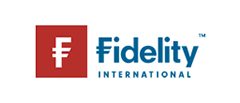
A positive earnings season, benign macro data and a promising economic trajectory combined to lift global equities in July - a historically strong month. Since the lows of October, global equities have generally climbed.
Despite negligible overall growth, earnings have beaten expectations in the US and Europe (79% of S&P 500 and 55% of Stoxx 600 so far). Admittedly, the bar was low, showing how adept companies have been at managing expectations, but it also indicates that businesses have so far adjusted well to the macro headwinds and decisions to borrow longer dated debt when rates were low have proved prescient.
At around 20x forward earnings, the S&P 500 is not cheap. Markets expect a soft landing having been worried about recession recently during the banking failures. There is justification for a soft landing; US growth is softening but still tracing above 2% and disinflation appears to be taking hold with US CPI falling from 9% to 3% in the past year. This has the hallmarks of a goldilocks scenario, however, things could still go off track.
The Fed’s job is not done. If inflation is moderating but policy remains overly restrictive, it could yet tip the economy into recession. But judging when to
ease policy is not simple. The monetary policy transmission mechanism in this cycle has proved difficult to predict, and we may not yet have seen the full lagged effects of tightening on the economy.
The resilience of the consumer over the rest of the year will also be crucial to gauge the risk of recession. US excess savings should be depleted towards the end of the year. However, the distribution of excess savings is skewed by the very richest cohort, while the bulk of people are close to or have already exhausted their windfalls. With consumer delinquencies ticking up, student loan repayments resuming in October and potentially added pressure if labour markets weaken, consumers could be vulnerable.
In China, the consumer rebound has been underwhelming, but authorities are rolling out new stimulus to revive consumption and boost industries including real estate. Valuations are attractive with the Shanghai Composite trading at around 11x forward earnings.
August has started with a retrenchment in equity prices, and a return of the diverging relationship between bond yields and equity prices that has been missing since April. That is welcome, helping to reset the stock-bond correlation.
With earnings largely out of the way, equity markets may take their prompts from macro signals. Investors should pay close attention to stocks that have risen the most on soft landing hopes - these could be particularly exposed if the risk of recession rises. And remember, while July is historically strong, August and September tend to be weak.
Martin Dopkin Head of Equities, Asia-Pacific
The Equities Outlook provides an overview of our investment team’s views and positioning in each of the key markets. Each of our portfolio managers has discretion over the positioning and holdings of their portfolios, and, as a result, there may at times be differences between strategies applied within a fund and the views shared in this document.
Trading Desk Update
Growing optimism in soft landing
July was another strong month for global equities as the Fed and ECB both raised rates by 25bps, which markets interpreted as supportive as central banks moved closer to the peak of interest rate hikes. The shift away from a recession and towards a soft-landing scenario, continued to drive the broader indices higher.
Markets expect interest rates to be nearing their peak
Sentiment improving on China
MSCI Asia Pacific rose 4.9% in July on continued resilience in Japan, Korea and Taiwan. Macro data in July supported sentiment. Disinflationary trends in developed markets, dovish central bank hikes and China’s late July policy announcement lifted hopes for a stabilisation in growth, and stronger commodity prices helped parts of emerging Asia.
China delivered gains after the Politburo meeting statement removed the stern wording of “homes are for living in, not for speculation” and mentioned the more proactive phrase “activating the capital market.”
This sentiment shift on China’s growth prospects together with tightening in global supply, also healed crude oil to perform very strongly in July - welcome news for oil majors, which are contending with a downbeat Q2 reports reflecting weaker chemicals performance and gas prices. Strong commodity markets benefitted parts of ASEAN.
In Japan, equities stalled heading into the critical yield curve control decision and rallied after it. Taiwan and Korea both saw sharp increases in retail participation (particularly in AI/server names and battery materials), which fizzled out somewhat towards the end of July.
India (US$4.2 billion) continued to lead in foreign inflows, followed by Korea and Philippines. Taiwan and Thailand saw US$3 billion and US$361 million outflows in July, respectively.
US
US market leadership is broadening
US market returns this year have been dominated by the mega cap technology orientated stocks, notably fuelled by the artificial intelligence theme. The seven companies (Apple, Amazon, Alphabet, Microsoft, Meta, Nvidia and Tesla) have delivered a combined return of over 50% this year while the remaining 493 stocks have only posted a single digit returns.
The shift towards these names has been caused by a rotation back into growth companies following a resilient US economic performance, better than expected earnings results, and hopes that the rate hiking cycle is nearing its end. Historically, the top ten stocks in the S&P 500 deliver 35% of overall returns, but this year it has been 70%.
This market concentration has led to concerns that the equity rally is too narrow, top heavy and unsustainable. However, market leadership has started to broaden out, suggesting investors may be increasingly focussing on valuations.
Expectations that the US could avoid a recession and have a soft landing while the Fed controls inflation and ends its tightening campaign have underpinned expanding market breadth over the past two months.
Ten stocks typically deliver 35% of S&P 500 returns
EUROPE
ECB switches to more dovish tone
European equities continued to advance in July on cooling inflation in the Eurozone and the US, as well as additional stimulus measures in China. The ECB raised rates by 0.25bps and, while President Lagarde stressed the importance of data dependency and new staff projections due in September in determining the future path for policy, the overall tone was more dovish.
The ECB expects inflation to drop further over the remainder of the year. Investors are seeing clearer signals of the transmission mechanism as tightening continues to move through the credit channel into the real economy, reinforcing the view that the ECB’s hiking cycle is now close to its peak.
Click on the following link to read the full article
Equities Monthly August 2023 (fidelity.be)
Important information
This is a marketing communication. This information must not be reproduced or circulated without prior permission.
This information must not be reproduced or circulated without prior permission.
Fidelity only offers information on products and services and does not provide investment advice based on individual circumstances, other than when specifically stipulated by an appropriately authorised firm, in a formal communication with the client.
Fidelity International refers to the group of companies which form the global investment management organisation that provides information on products and services in designated jurisdictions outside of North America. This communication is not directed at, and must not be acted upon by persons inside the United States and is otherwise only directed at persons residing in jurisdictions where the relevant funds are authorised for distribution or where no such authorisation is required.
Unless otherwise stated all products and services are provided by Fidelity International, and all views expressed are those of Fidelity International. Fidelity, Fidelity International, the Fidelity International logo and F symbol are registered trademarks of FIL Limited.
GLEMUS4630-1123



